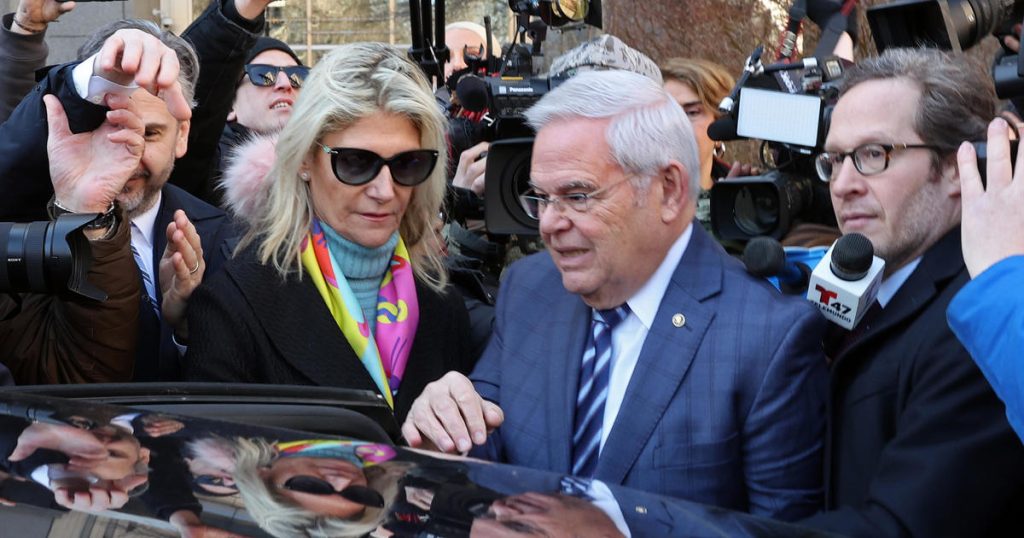Senator Bob Menendez is facing corruption charges for the second time in his career, this time for allegedly trading his political influence for cash, gold bars, and a new Mercedes-Benz convertible. Menendez’s wife, Nadine Menendez, who is also indicted in the corruption probe, allegedly texted an Egyptian intelligence official offering assistance. The allegations date back to 2018 and involve Menendez providing political favors to businessmen and secretly helping the governments of Egypt and Qatar. Menendez has pleaded not guilty and is considering testifying in his defense. Recent court filings have revealed potential defense strategies, including incriminating his wife and attributing cash stockpiling to past traumatic events.
The initial charges against Menendez and his wife in September 2023 included conspiracy to commit bribery, honest services fraud, and extortion under color of official right. Subsequent indictments added additional charges, including acting as a foreign agent for Egypt. Menendez and his wife are accused of providing Egyptian officials with sensitive information and influencing decisions to benefit Egypt. Prosecutors also allege that the couple received lavish gifts from businessmen in exchange for using Menendez’s power and influence. Menendez had been withdrawing large sums of cash monthly from his personal savings account as a precautionary measure for emergencies.
The other defendants in the corruption case include two New Jersey businessmen, Wael Hana and Jose Uribe. Hana, originally from Egypt, had connections to Nadine Menendez and was involved in various dealings between the Menendezes and Egyptian officials. Uribe assisted in arranging the purchase of a Mercedes-Benz convertible for Nadine Menendez, which was allegedly paid for using cash provided by Hana. These actions were part of a broader corruption scheme involving Egypt, Qatar, and business interests. Prosecutors also claim that Menendez interfered with various criminal investigations and prosecutions on behalf of the businessmen.
Uribe pleaded guilty to several charges, including conspiracy to commit bribery, wire fraud, obstruction of justice, and tax evasion, agreeing to cooperate with investigators. The Menendezes are accused of attempting to cover up their mortgage and car payments by characterizing them as loans and making false statements to investigators. The indictment details a pattern of corruption, with Menendez allegedly accepting gifts in exchange for using his position to benefit the businessmen involved. The case highlights the potential consequences of using political influence for personal gain and illustrates the complexity of navigating legal and ethical boundaries as a public official.
The upcoming trial will provide further insight into the allegations against Menendez and his co-defendants. The case has garnered significant attention due to Menendez’s prominent position as a senator and the seriousness of the charges brought against him. The potential defenses presented by Menendez and his legal team, which include implicating his wife and citing past traumatic events, raise questions about the extent to which personal circumstances can be used to justify alleged corrupt behavior. The outcome of the trial could have far-reaching implications for Menendez’s political career and the broader landscape of political accountability in the United States.















